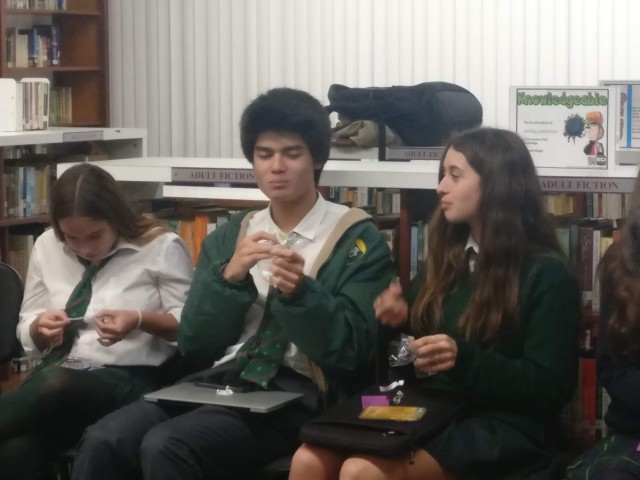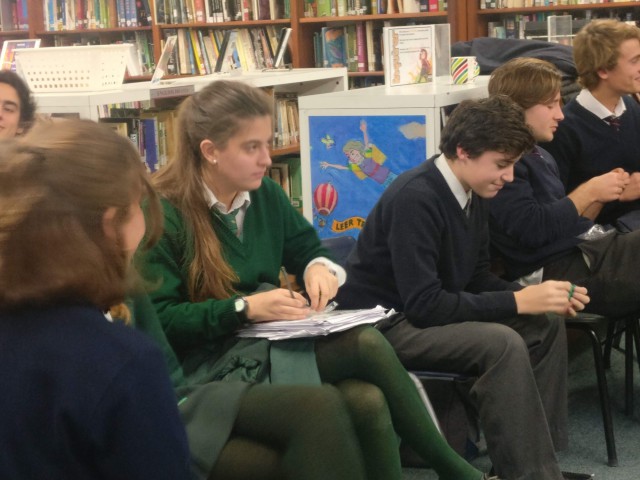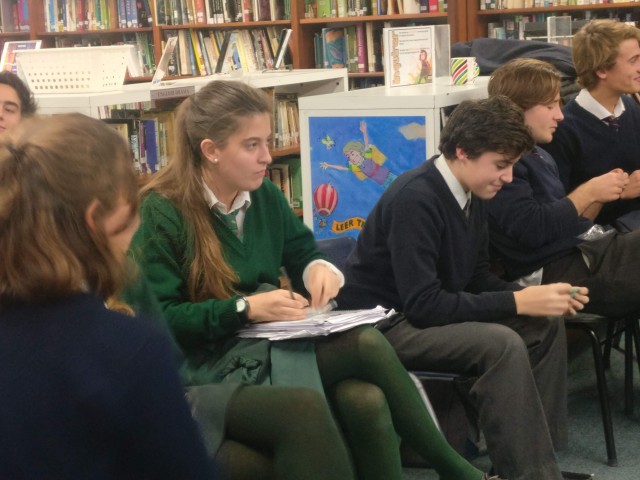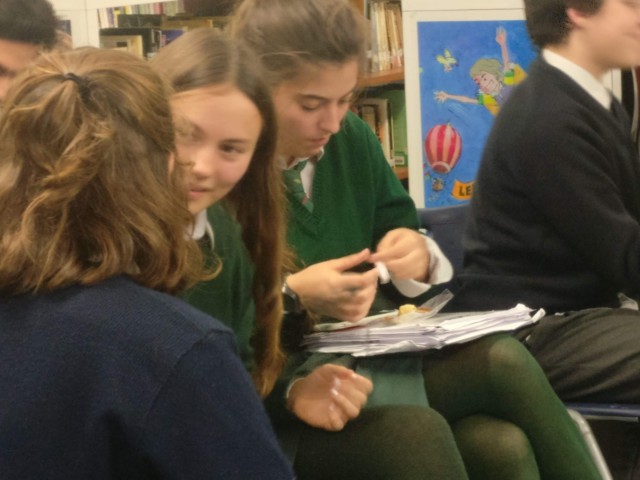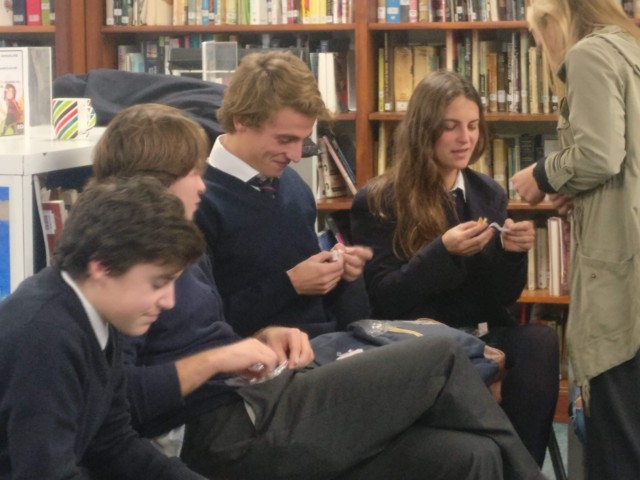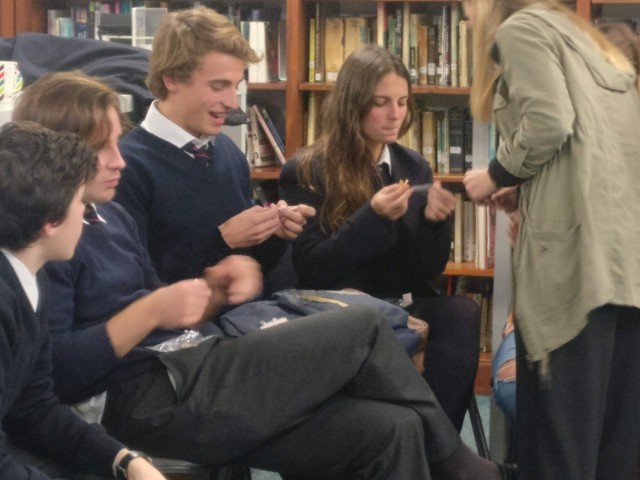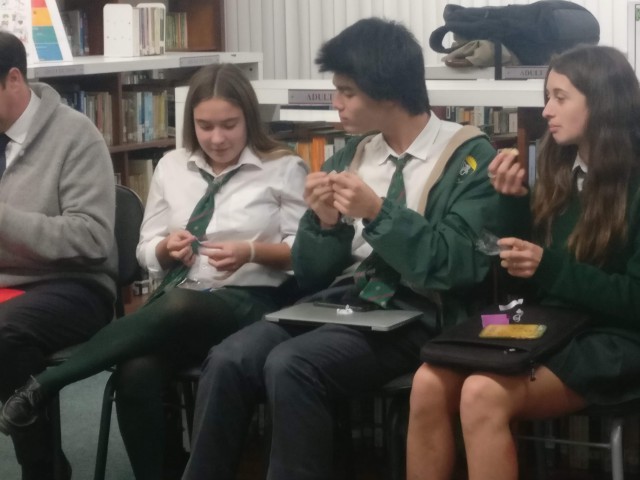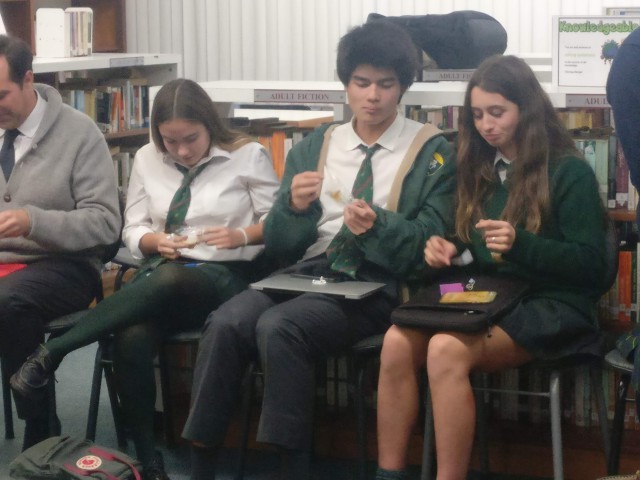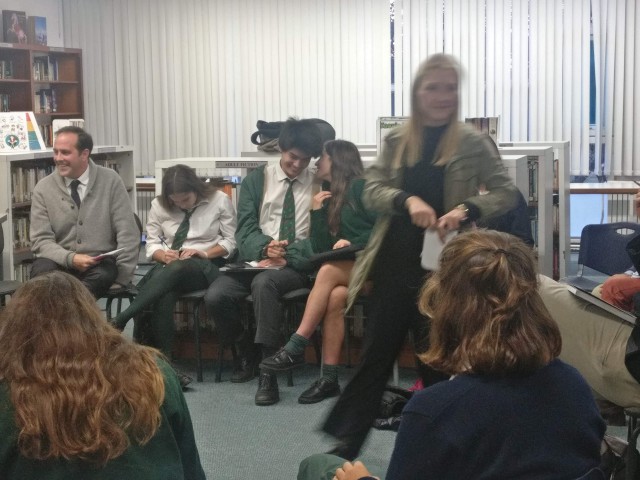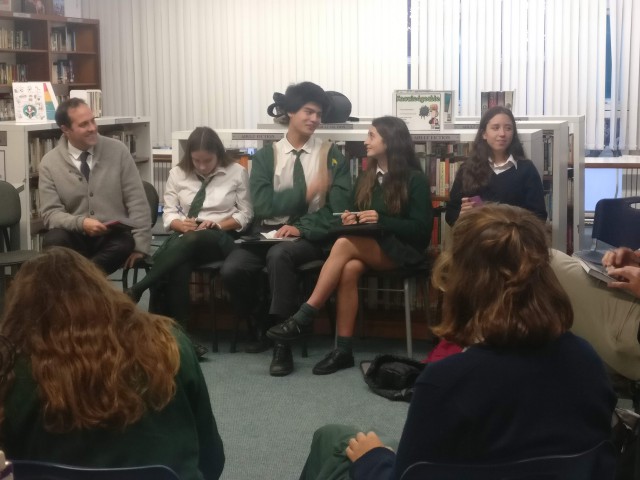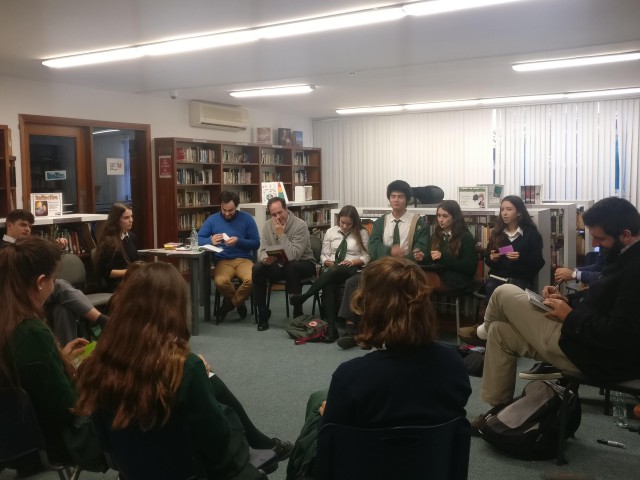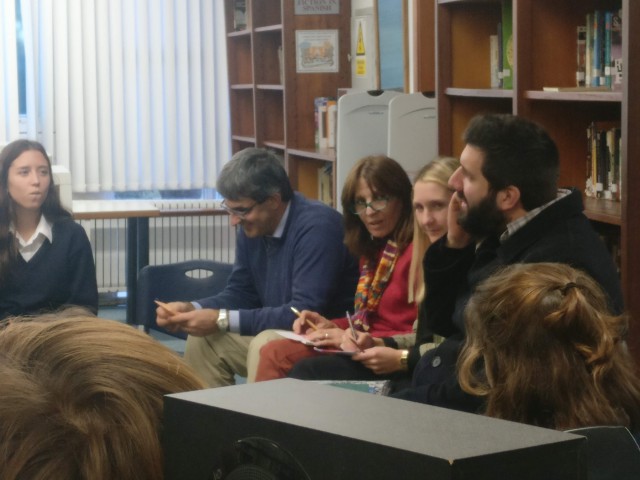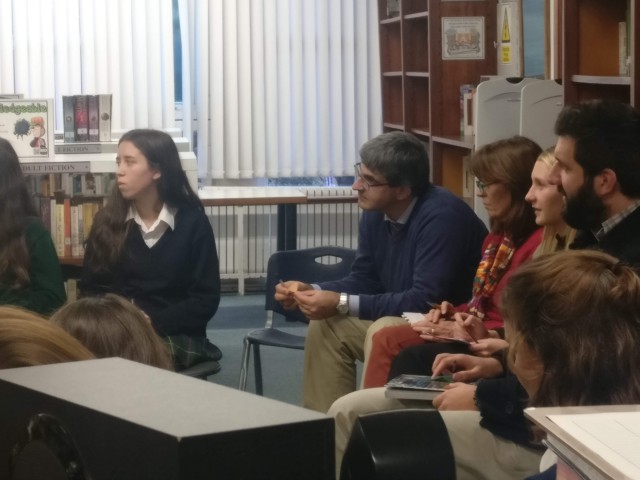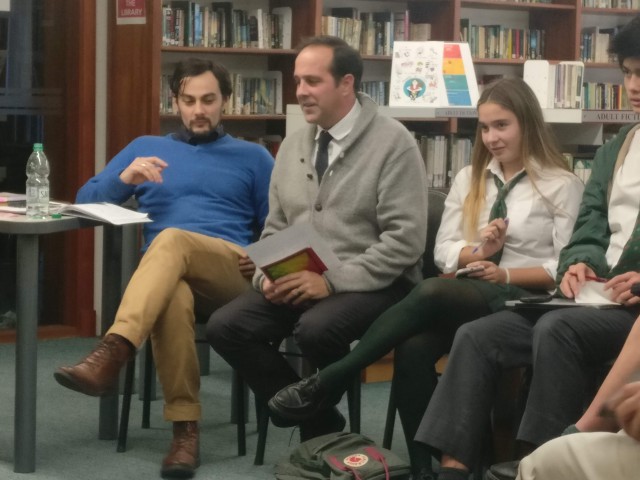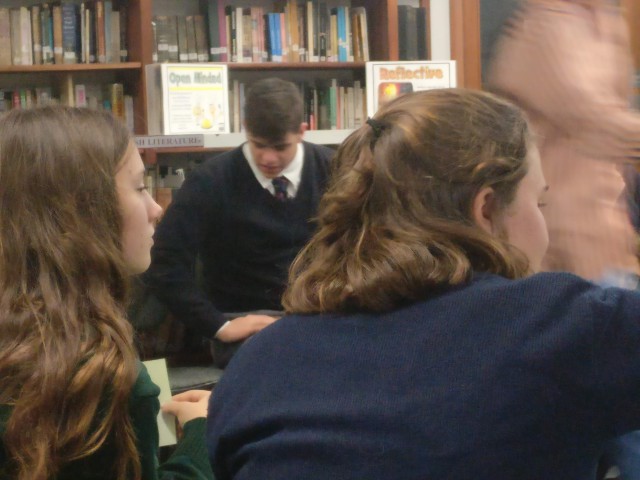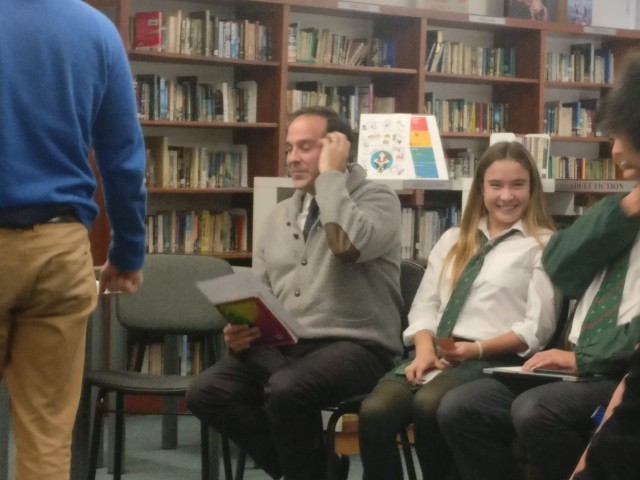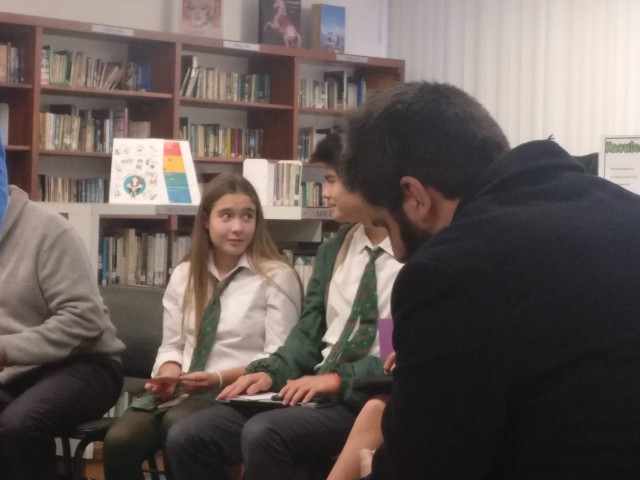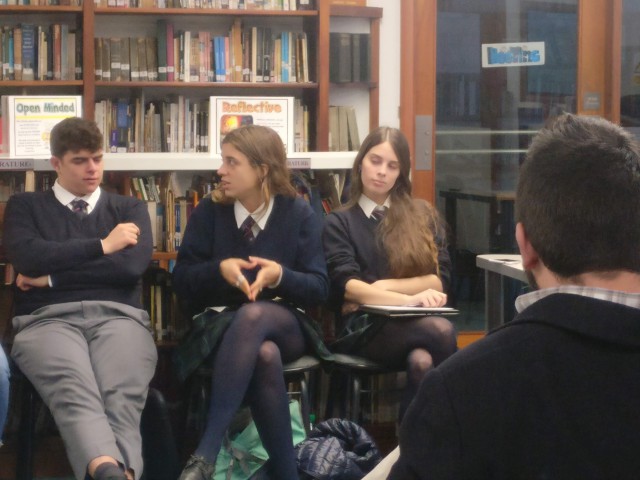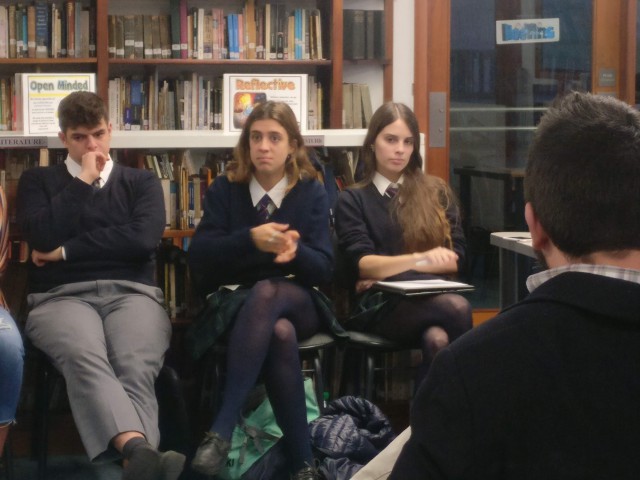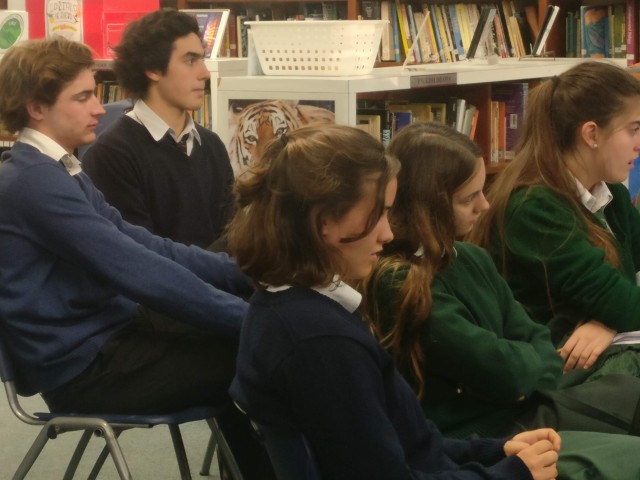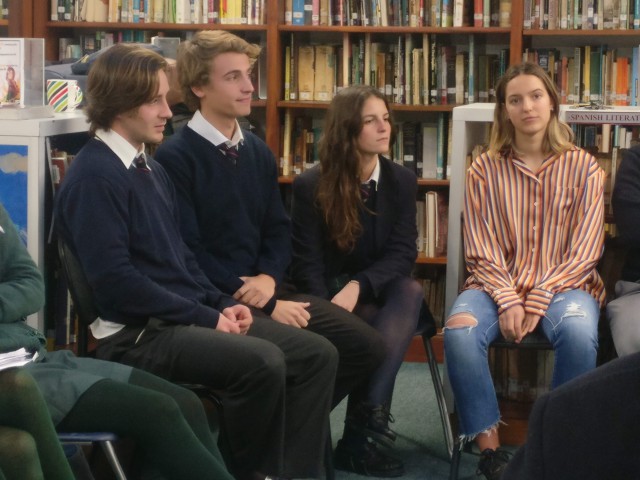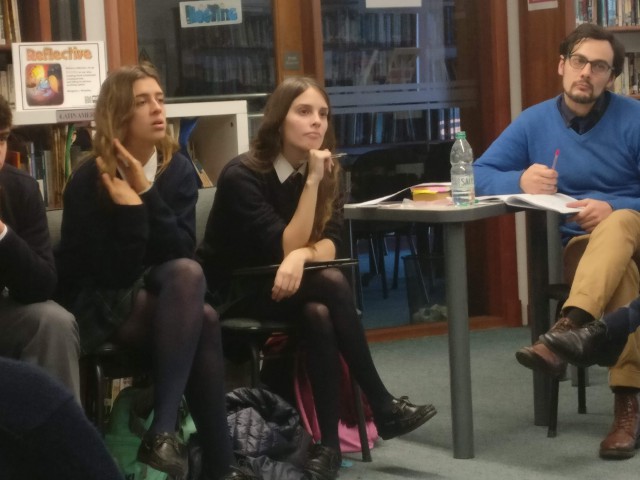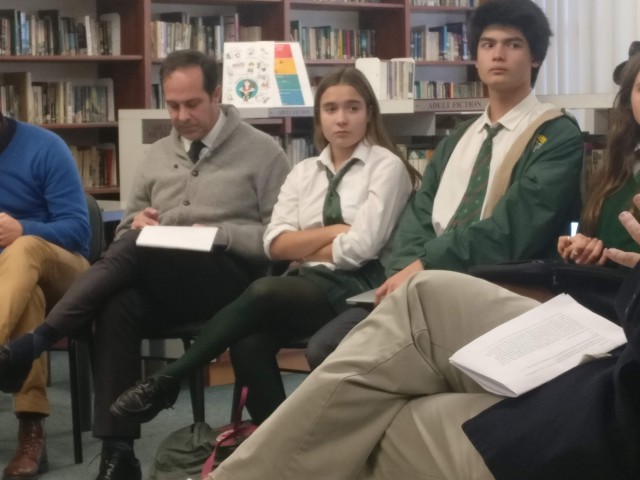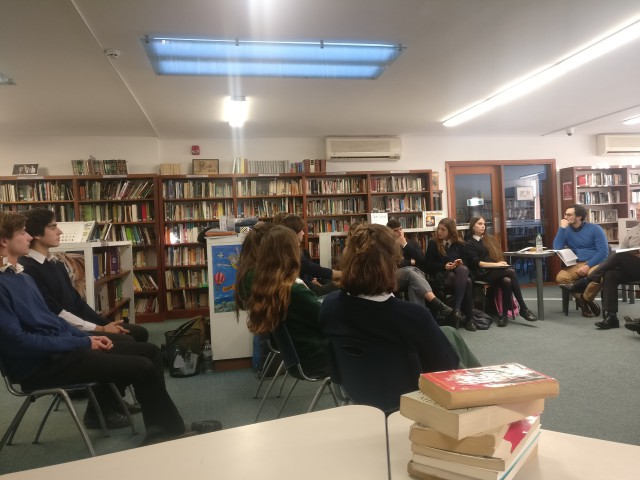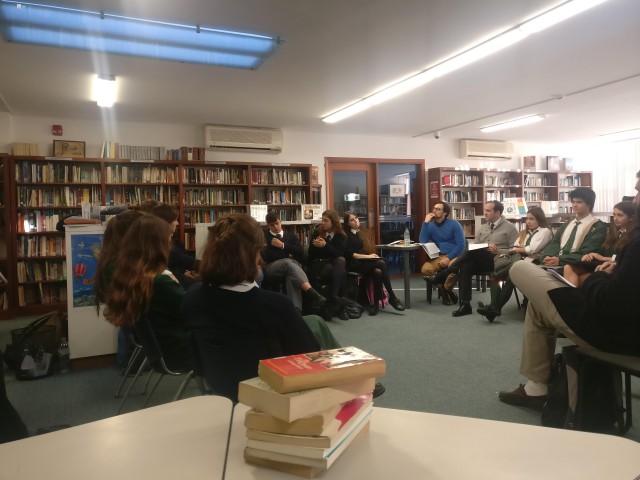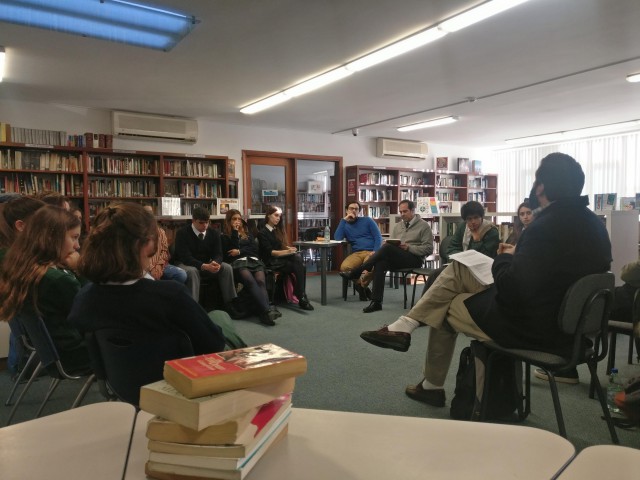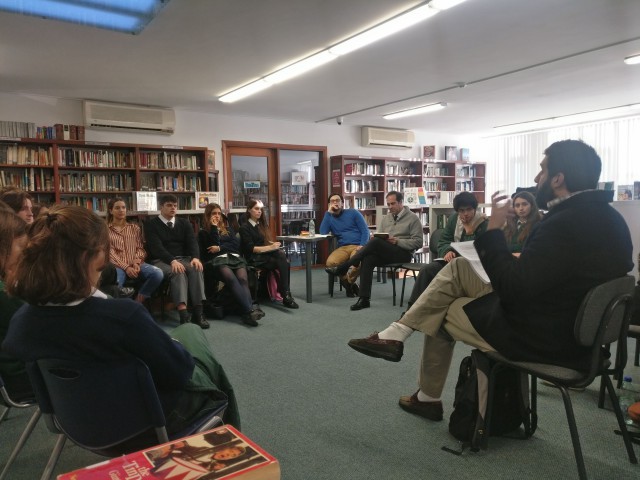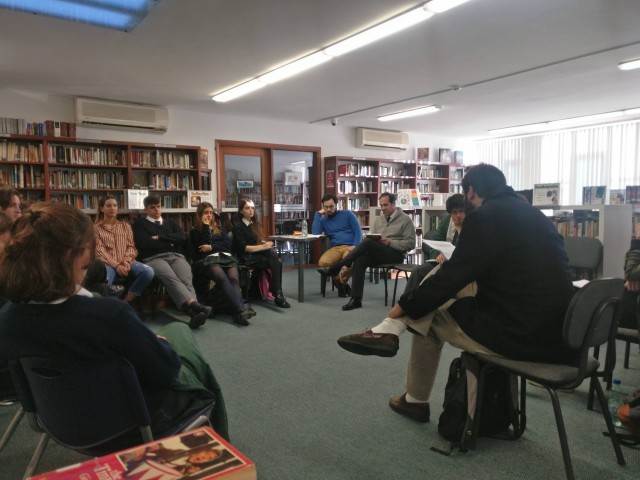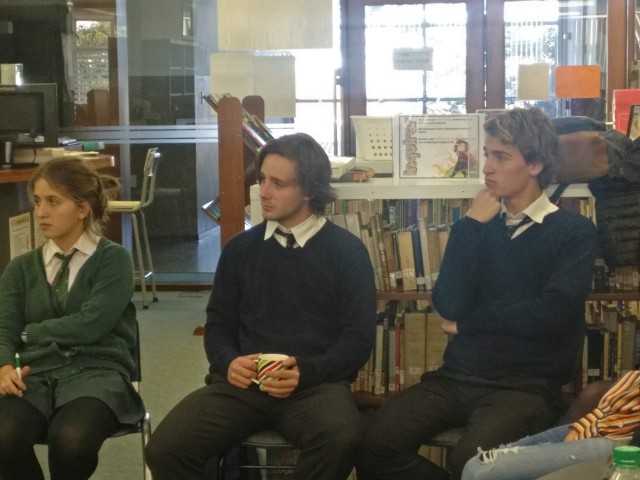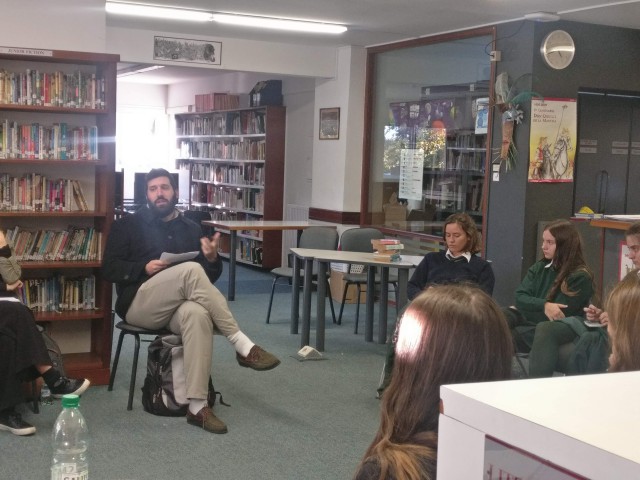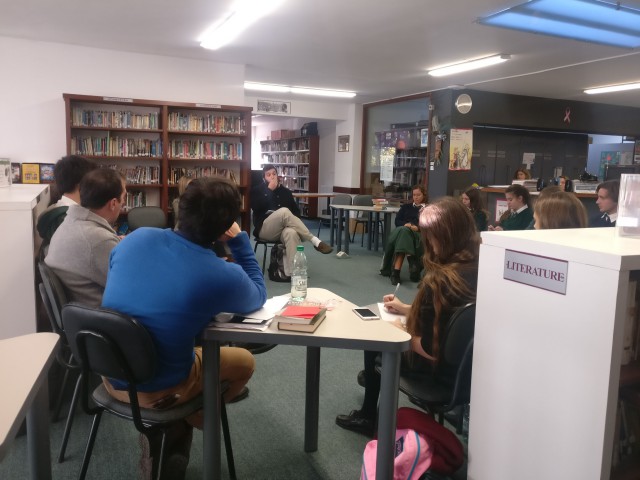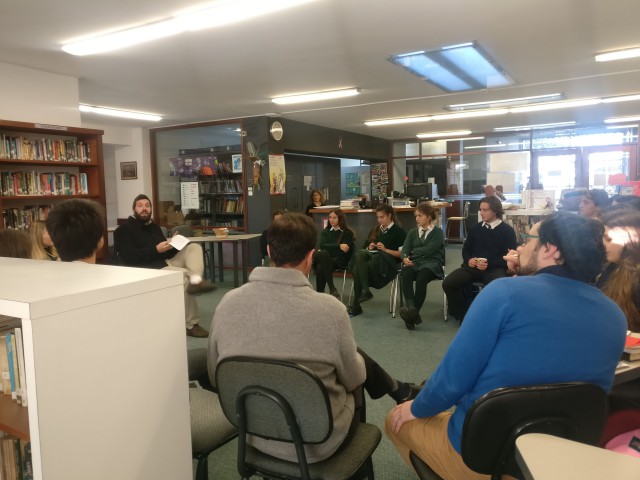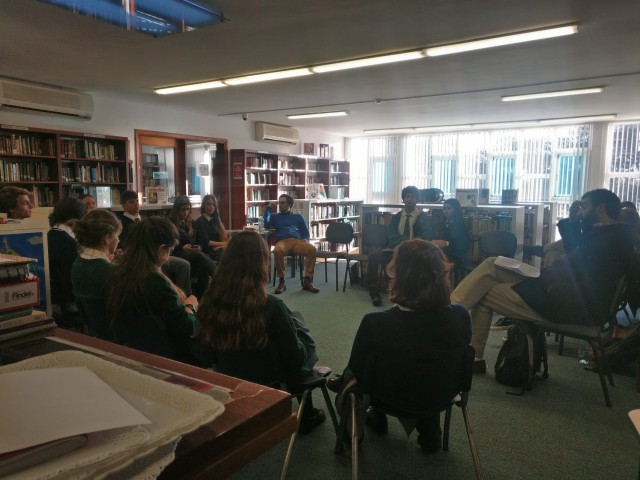OTOÑO FILOSÓFICO
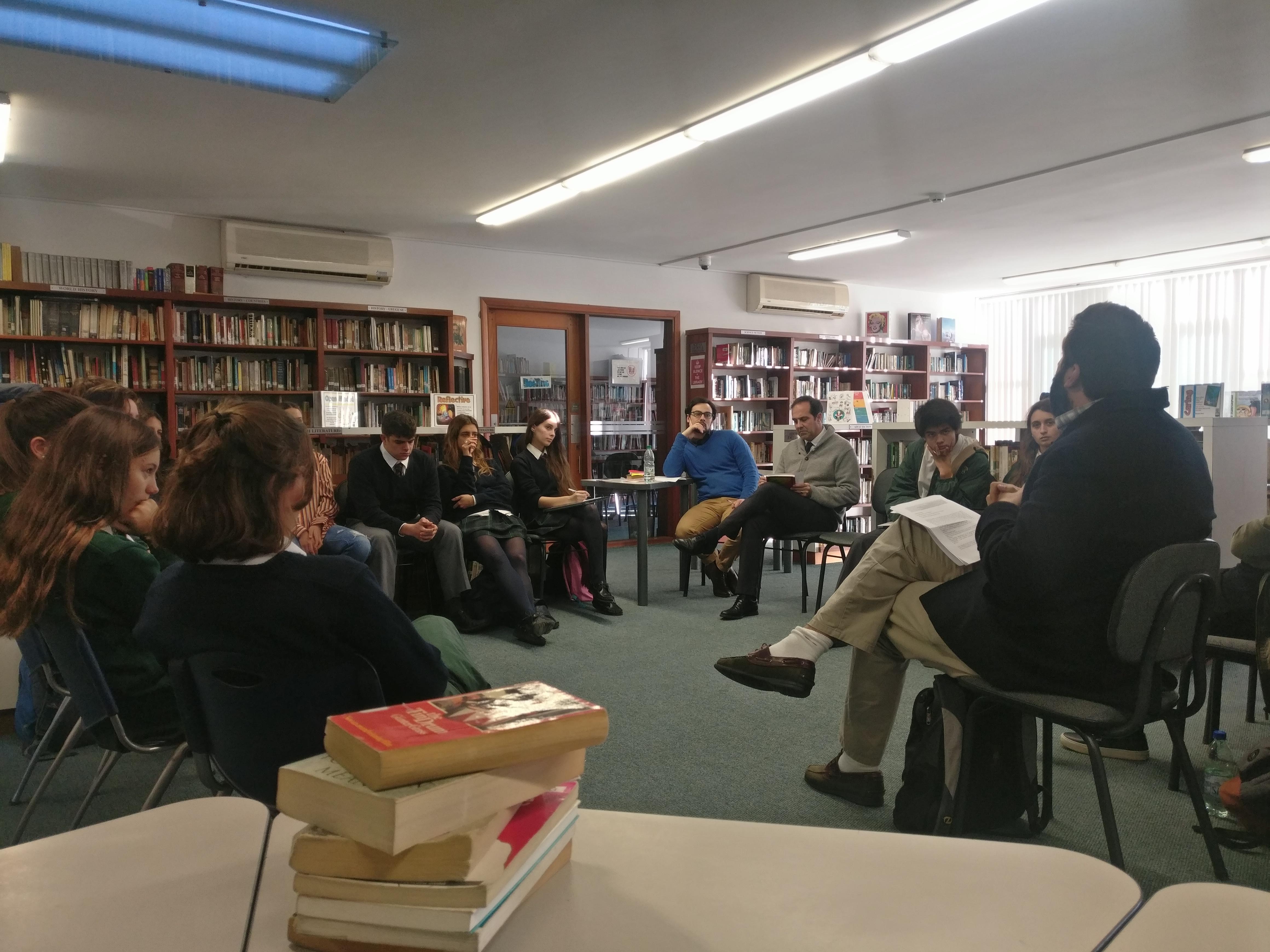
Some students may have the misconception that the practice of philosophizing is for an intellectual elite. However, the act of philosophy is a privilege open to everyone. Just as Socrates warned that, “the unexamined life is not worth living,” other philosophers have reminded us that, “to live a creative life, we must lose the fear of being wrong.”
In this spirit of open-minded sharing of ideas, the Hobson Library in the Senior School hosted an event to philosophize about the notion of destiny. Moderated by Diego Paseyro, Filosofía teacher, Maria Acle, IB Philosophy teacher, Rodrigo Bacigalupe, IB Spanish teacher, and Nicholas Drever, IB Theory of Knowledge teacher, the event was an invitation to all students to discuss destiny, fate, the future, determinism and free will. Over twenty-five students and teachers participated in this extra-curricular event with the sole purpose of sharing ideas in an atmosphere of active listening and respect.
So, what came out of this one-hour discussion? In synthesis, it was thought-provoking and stimulating. We began by discussing the connection between identity and destiny. Diego began the discussion by raising the idea that to achieve our destiny we must abandon our comfort zone, otherwise we may risk, as Pessoa suggested, that we live “at the margin of our own self.” The metaphor that guided our discussion was that our destiny could be a bus whose destination is unknown, but that perhaps we are free to get off and board another. We considered destiny to be the “unwritten space” between where we are now and our eventual death. Taking consciousness of our mortality is not fatalistic, rather it should motivate us to live fully. As one student commented, this idea reminded her of Heraclitus who stated that, “life is the art of dying.” We considered many philosophers: Buddha, Borges, Heidegger, Socrates, Sartre, Nietzsche, Leibniz, Montaigne, among others. We came to the realization that knowing that our destiny is eventually our death, knowing we are finite, forces us to decide how we want to live. God was central to this discussion, as perhaps part of our destiny is to discover our, or His, purpose in life, but so was literature, and the need to find texts or oracles which provide guidance, and science, considering quantum physics and notions like the butterfly effect which suggest life has many possibilities. In the end we realized that thinking about destiny leads us to think about freedom and that we are the result of our own decisions, so it is best to love what we do.
We observed with humour the old adage: “we didn’t ask to be born, we don’t know how to live, and we don’t want to die.” With this panorama, philosophy is comfort food. Thinking makes it so.
